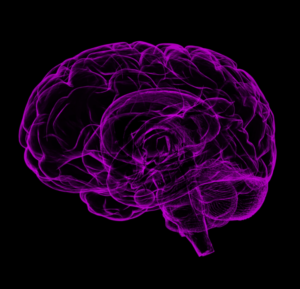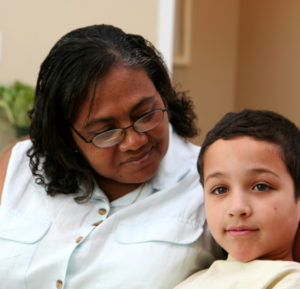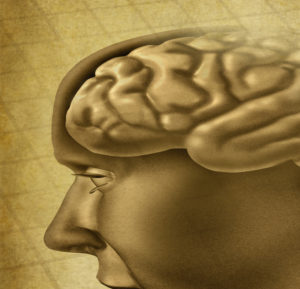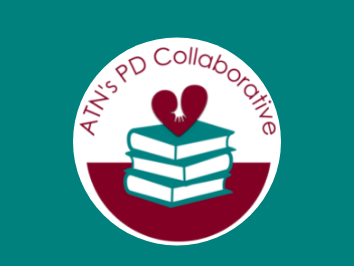Treatment
Finding Hope & Help for Healing
Trauma-Sensitive, Attachment-Focused Therapies
TREATMENT
The most important component in helping a child impacted by trauma to heal is a strong, therapeutic parent (primary caregiver). You can learn more about becoming a Therapeutic Parent on this website,. For ongoing support, education and encouragement in your Therapeutic Parenting journey, consider joining ATN.
The second most important component is trauma-sensitive, attachment-focused therapy. ATN actively encourages ALL families to work with therapists who specialize in attachment & trauma. While experts aren’t readily available in all areas throughout the US and the world, we urge you to seek out experienced professionals, even if it means traveling, working remotely, arranging for local therapists to be trained, or finding a professional willing to come to you.
How do I find an experienced attachment therapist & trauma specialist?
Search ATN’s Resource Directory
Trauma-Based Diagnoses in the DSM-5
The Diagnostic and Statistical Manual of Mental Disorders, 5th Edition added a classification of Trauma- and Stressor-Related Disorders better categorizing the disorders seen in children significantly impacted by early trauma. These diagnoses now include:
- Post-Traumatic Stress Disorder (PTSD)
- Acute Stress Disorder
- Dissociative Disorders
- Reactive Attachment Disorder (RAD)
- Disinhibited Social Engagement Disorder (DSED)
And the one not yet officially recognized, but should be:
Trauma-Sensitive, Attachment-Based Therapy
The many pages in this section of the website details some of the most commonly used treatment modalities by attachment and trauma professionals. This field is rapidly evolving, and ATN strives to keep up-to-date. Many of these modalities and interventions are currently being researched and all are considered evidence-based or evidence-informed. Traits of trauma-sensitive, attachment-focused treatments include:
- Are grounded in attachment theory and recognize the importance of working toward healthy attachment and building resiliency.
- Address the child’s traumatic stress – including feelings of fear, shame, grief and loss.
- Are experiential (do not depend on talk therapy). Talk therapies and those dependent on behavior modification (reward/punishment systems) are not usually successful with our children.
- Enhance emotional regulation and teaches self-regulation skills.
- Involve the parent/caregiver in the therapy, providing parenting strategies and recognizing the critical importance of therapeutic parenting.
Explore these modalities in more detail:
- ARC – Attachment, Self-Regulation & Competence
- CPP- Child-Parent Psychotherapy
- DDP-Dyadic Developmental Psychotherapy
- EMDR -Eye Movement, Desensitization and Reprocessing
- PCIT – Parent Child Interaction Therapy
- Real Life Heroes
- TBRI – Trust-Based Relational Interventions
- TF-CBT – Trauma-Focused Cognitive Behavioral Therapy
- Theraplay
- TRM/CRM – Trauma Resiliency Model/Community Resiliency Model
Neuro-Based Approaches. Research on early childhood trauma is indicating that interventions that address the underlying neurological impairments caused by early abuse and neglect can be VERY beneficial in conjunction with attachment & trauma therapy. The following approaches are currently being used to help traumatized children.
- Interpersonal Neurobiology – Dr. Dan Siegel
- Neurofeedback
- NMT – Neurosequential Model of Therapeutics – Dr. Bruce Perry
- Neurodevelopmental Reorganization
- Sensory Integration
Attachment Therapy
WHAT WORKS & WHAT DOESN’T
Questions to ask when considering treatment
ATN’s Official Policy on Treatment: ATN encourages all parents of traumatized children to seek professional therapy for their children that is trauma-sensitive and attachment-focused. Information on this website or support from other ATN members cannot replace professional therapy. We do not endorse specific therapists or treatment modalities. The information provided on this website should not be considered an endorsement. All parents should thoroughly research their options and ask for references.
More on Treatments

ACEs and Toxic Stress: How We Can Heal Children’s Brains
As a trauma and emotion-centered psychotherapist, I am relieved that children are now being screened for toxic stress. Thinking about mental health as a byproduct of a child’s environment is

Eye Movement, Desensitization and Reprocessing (EMDR)
EMDR is a psychotherapy designed to alleviate distress associated with traumatic memories. This description is taken from the FAQ section of the EMDR Institute website. EMDR (Eye Movement Desensitization and Reprocessing)



Medication
There is NO medication specifically for RAD, attachment difficulties or trauma. However, ATN does not discourage the use of medications. Many families have found that medications help to treat symptoms and lessen


Neuro-Based Approaches
One of the fastest-evolving areas of promising interventions for traumatized/attachment-disordered children in the area of neuroscience approaches. These approaches are based on the premise of brain plasticity; that is, the research


Theraplay
Theraplay® assumes that the primary motivating force in human behavior is a drive toward relatedness to others not objects. Personality development is at its core interpersonal. The early interactions between parent and


Real Life Heroes
Real Life Heroes provides practitioners with easy-to-use tools including a life storybook, manual, creative arts activities, and psycho education resources to engage children and caregivers in trauma-focused services. Tools and




Trust Based Relational Interventions (TBRI)
Developed by Dr. Karyn Purvis and Dr. David Cross at the TCU Institute of Child Development, Trust-Based Relational Interventions® (TBRI®) is an emerging intervention model for a wide range of




ATN Resources
Parenting
Therapeutic Parenting - Empowering Trauma-Informed, Attachment-Focused Caregiving
Schools
Creating School-wide Trauma-Informed Reform led by Trauma-Focused Educators
Resource Directory
A comprehensive online directory of trauma-informed, attachment-focused helping professionals
PD Collaborative
Are you seeking trauma-informed Professional Development Training or Consultations for your School?
TSS Conference
Annual Creating Trauma Sensitive Schools Conference.
Podcast
Listen to our Bi-monthly Podcast on Trauma-Informed and Therapeutic Strategies
Shop ATN
Shop for resources and tools to empower and support children, families, schools and communities
Get Involved
Join ATN - Together we can end the silence around childhood trauma!






